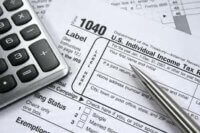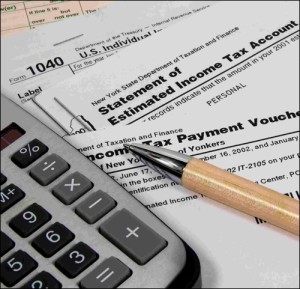Dear Bonnie, I just bought my first rental property. I can write off the closing costs, right? What else can I write off?
J.K., Sonoma
Dear J.K. Thanks for writing. I get this question often. And I’m afraid the answer is no, you cannot write off all of the closing costs. Nor can you write off the down payment. Certain expenses within the closing escrow statement may be deductible for rental real estate, such as an amount you pay for property taxes and homeowner’s insurance. Points may be amortized over the life of the loan. When you prepare your taxes next year, be sure to provide your tax pro with the closing escrow statement.
That being said, a rental property can provide you with some nice tax deductions. As a rental property owner, you are entitled to write off “ordinary and necessary expenses for managing, conserving, or maintaining rental property from the time you make it available for rent.” The IRS has no definitive list of deductions. They do, however, have a short list of “Thou-shalt-nots,” which I will explain later.
As a landlord, you should visit irs.gov and take a good look at Schedule E. Report the income and expenses for your rental property on this form. Almost every deduction, certainly the obvious ones, are listed: advertising, auto and travel, cleaning and maintenance, commissions, insurance, legal and professional fees, management fees, mortgage interest, other interest, repairs, supplies, taxes, utilities, and depreciation. Beyond that are five lines for “Other Expenses,” which might include bank charges, telephone, security, equipment rental, homeowner association dues, gardening, among others.
Timing is everything. You can deduct your expenses as soon as the property becomes available for rent. If you own a rental property that is sitting idle, your expenses, with the exception of depreciation, are not deductible. Of course, when I say idle, I’m referring to a property that is not available for rent. Perhaps you are performing a major remodel or you don’t need the money and just don’t want to deal with tenants right now. But if the property is available and you are attempting to secure a tenant, you may deduct your expenses even if it sits unoccupied. If the property is vacant and listed for sale, you may deduct the expenses until it is sold.
Now to expand on the “thou shalt not’s” and the logic behind certain deductions.
Travel expenses: if the primary purpose of a trip is to collect rental income or to manage, conserve, or maintain your rental property, the expense is deductible. For example, if you own a condo in Hawaii and drive by to make sure it’s still there while you’re on vacation, you don’t have a bona fide deduction. Obviously, vacation was your primary purpose. But if your primary reason for traveling there is to collect back rent or paint the exterior or figure out why the roof keeps leaking, you are entitled to the deduction. Keep in mind though, that if you are visiting the property to make major capital improvements, like remodeling the bathroom and kitchen, the expense is not currently deductible. You must add the cost of the trip to the cost of the improvements and depreciate it. Make sure to keep all documentation to prove intent.




Be First to Comment